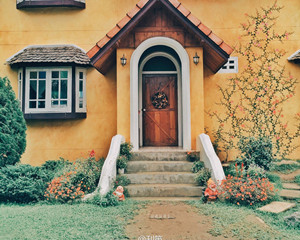The one group got all the support that they needed- whatever they wanted they got. They asked for certain food- they got it. They asked to be helped, carrying out certain tasks- they got it. Everything was done for them. In many ways, the old age homes that many people dream of.
第一组所有需要都能得到满足,不管什么需要都能满足。他们想吃什么,就能吃什么;他们想在某些事情上寻求帮助,同样也能满足。所有事情都无需他们动手。很大程度上来说,这是大多数人梦想的养老院
And then the second group didn't have as good. Not everything was catered for them. They very often had to do their own things. For example, notably, they had to water their own plants.
而第二组就没有这么好的待遇了,他们不能衣来伸手饭来张口。时常都需要自己动手。比如说,他们必须自己浇花

They very often had to set their own routine during the day. The service wasn't as great as the first group. They had to tell the employees if they needed something. They very often had to get it themselves. And again, they planted- they watered their own plants.
他们必须自己规划每天做的事。服务没有第一组那么周到。他们需要什么的话,必须自己告诉职员,经常需要自己动手丰衣足食。同样,他们需要自己浇花
And what they did was- Langer created this two different scenarios and then went back 18 months later.
而研究的内容是——兰格创造了这两种不同的情境。然后一年半后再回来,
After 18 months, the second group, the group that watered their plants, the group that took care of their day, the group that was not catered for, in the same way as the first group- they were less likely to be depressed; they were happier; they were more energetic; more independent, physically healthier.
一年半后,第二组,自己浇花的那一组、自己照顾自己的那一组、没有人管顾的那一组,跟第一组相比起来他们没那么沮丧,他们更快乐、他们更有活力、更独立、也更健康













